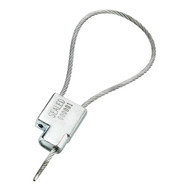Combatting the Many Forms of Illegal Trade
Posted by Steve Diebold
Illegal (or illicit) trade is a global issue costing businesses, consumers, and governments enormous sums. According to the American Foreign Service Association total trade in stolen and counterfeit consumer goods is over 1 trillion US dollars annually. This does not include other types of illegal trade like illicit drugs, counterfeit pharmaceuticals, weapons, wildlife and timber, fish, antiquities and many more.
The secondary costs of illegal trade have serious consequences. Instead of going to businesses and governments to help taxpaying citizens and grow the economy, money from illegal trade often funds gangs, terrorists, armed conflicts, kidnapping, and a host of other dangerous groups and activities. It is a threat to us all.
There is wide public-private cooperation to reduce illegal trade. One group in the US (USA-IT) is a consortium of private companies and non-profit groups who cooperate with US Customs, Homeland Security and others in this effort. Similar groups exist around the world and within countries that have formed regional trade partnerships.
As a leading security seal manufacturer, AC&M products are on the front lines of efforts to mitigate losses and hold trade violators accountable. Here are some the more prominent forms of illegal trade, plus some of the groups working to stop it, and ways seals are employed in the effort.
Counterfeit or Illegal Consumer Products
Seals are a key tool in working to reduce trade in counterfeit and stolen goods, especially around transport and storage. Maintaining integrity of shipping containers, vessels, storage areas etc helps to assure the contents are not changed – from the time of closing and sealing the goods to the time of access. It deters the substitution of contents, with the added function of detecting any instance of opening whatever the reason.
For consumer goods the chosen seal types run the entire gambit of seals made today. It ranges from the simplest plastic padlock seal or pull-up seal to high strength cable seals and bolt seals which provide detection as well as a physical barrier to opening.
Adhesive labels with custom print, holograms, special void messages and other print features are now being used on many items. Security Adhesive Labels can be printed with much more information and detail than mechanical seals. This enhances the ability to monitor and control products as they move through the supply chain.
Tamper detection and monitoring are a primary purpose for using seals. Applying the data from seals to find and apprehend offenders is a function of security and law enforcement professionals. Effective use and sharing of that data aids in reducing the amount of loss and damage from illegal trade.
Drugs And Pharmaceuticals
These are two dangerous forms of illicit trade. Because they are so pervasive in world markets every government has agencies at work to detect and reduce the trade in potentially deadly drugs. Much of the effort is in the hands of law enforcement entities, in each country and internationally. Interpol, the UN and nearly every transnational trading organization have programs and policies to deal with drugs.
The use of seals is essential in limiting access to cargo conveyances that contain legally traded substances in transit or storage. The seal is an important identifier for detecting illegal substances within a shipment, vehicle or vessel. Not having the correct seal in place can flag a serious issue when effective surveillance practices are followed.
Seals are used in the effort to interdict drugs in much the same way as with consumer goods. But seal functions also extend to the prosecution of crimes -- by securing the integrity of evidence and sealing contraband from tampering after it is seized.
Wildlife and Plants
Dozens of private and governmental agencies are combatting illegal trade in wildlife and plants today. CITES is a leader in the field and regulates global trade in approximately 5,600 species of animals and 30,000 species of plants. They cooperate with a myriad of other agencies, both private and government to monitor and control legal and illegal trade. Individual countries have wildlife control authorities that are actively working to stop illegal wildlife trade but not always across borders. World Customs Organization (WCO) is an international agency that works specifically on issues of illegal transnational trade. They have close involvement in the area of wildlife, plants, and commercial agricultural trade.
While a range of seals are used in controlling wildlife and plants, one of the more popular seals used to identify and register animal skins, fish, and animal parts for legitimate trade is our model HS75 high strength plastic band seal.
Many other plastic seals are widely used for tagging live animals, plants and fish going to market legally.
Weapons and Other Military Assets
Because much of the illegal trade in weapons involves stolen material, seals are an important tool for military supply contractors and military entities across the globe. Seals are used from the point of manufacture all the way to field deployment. They help maintain access and control of transit and storage of equipment, weapons, and ammunition. This aids in the overall effort to keep them out of the hands of bad actors.
Much of the sealing involves indicative seals used for tamper evidence and record keeping. While heavy-duty barrier seals like AC&M model C-1 are in regular use for munitions and dangerous or sensitive assets.
Seals do not directly stop malicious arms dealers, but their use does reduce access to arms in transit and storage that are legally made for military applications. AC&M is a proud producer of seals for military use for over a century. Our ISO-9001 quality certification is specifically for the manufacture of both commercial and military security seals.
To learn more about our seals or for help with any of your seal needs contact an AC&M seals expert through our website at www.seals.com

